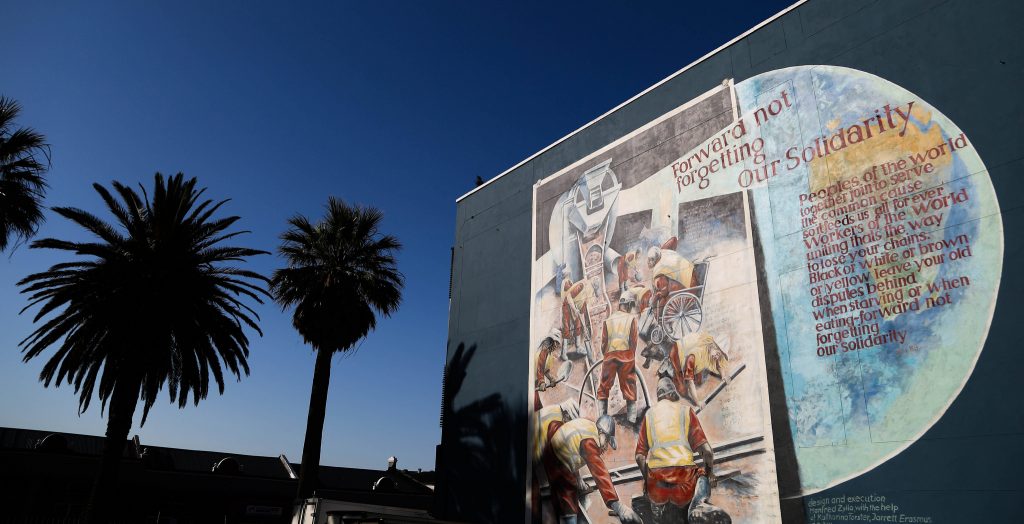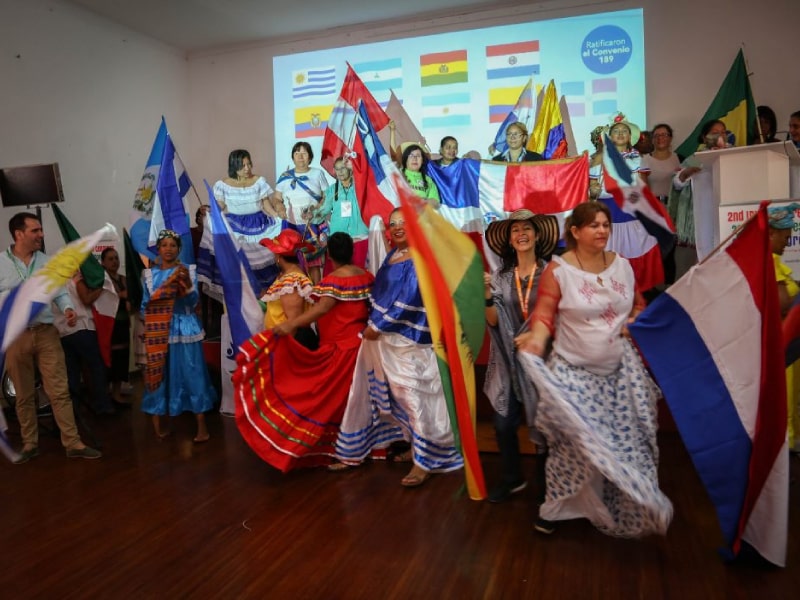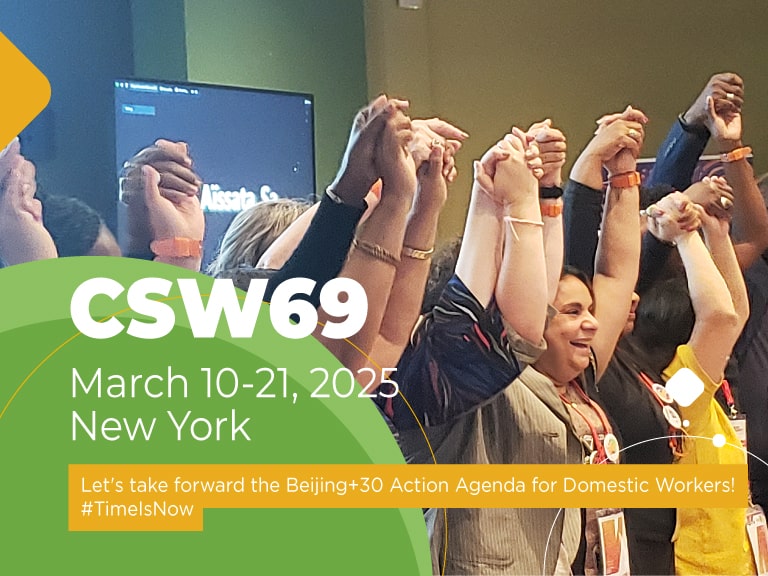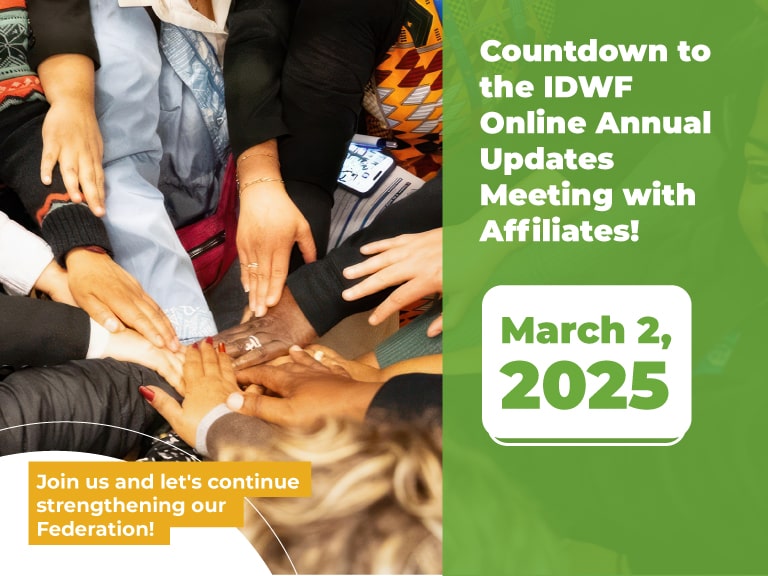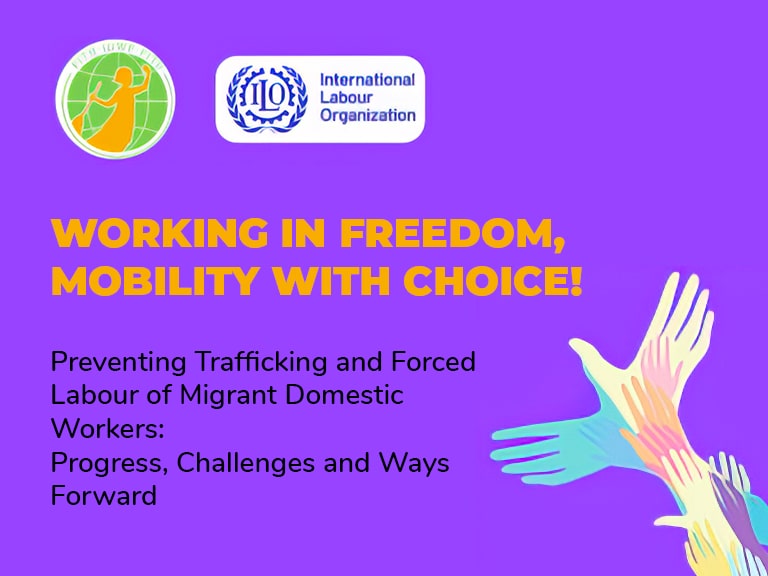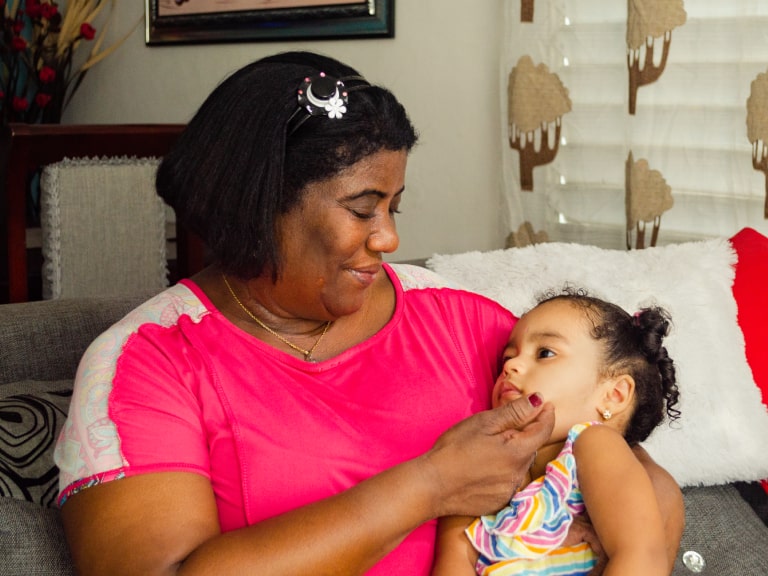- This event has passed.
The IDWF second congress 2018 – A snapshot
The four days were packed with speeches, group work (formal and informal), slogans, voting, laughter, singing, dancing, photo-taking and eating, among others. To most of us, it was a great success, as it has filled us with inspiration, spirit and concrete ideas to move on. We thank those who have supported this Congress in their own ways – by taking notes, interpreting into many languages, providing funds and so on. Without this support we would not have come this far.
Details
SOUTH AFRICA –
The IDWF Second Congress – a Snapshot
By Elizabeth Tang
The IDWF second Congress was convened in Cape Town, South Africa on the 16 – 19 November 2018. Among the 207 participants, there were 107 delegates and 100 observers from our affiliates as well as other organizations. They included trade unions, labour NGOs, funders and others. All were partners or allies of the IDWF, supporting its programs and activities either financially or with their technical expertise. This also included individuals who came along to help such as Jennifer Fish, Professor at Old Dominion University, USA, who has written extensively about the struggle of domestic workers.
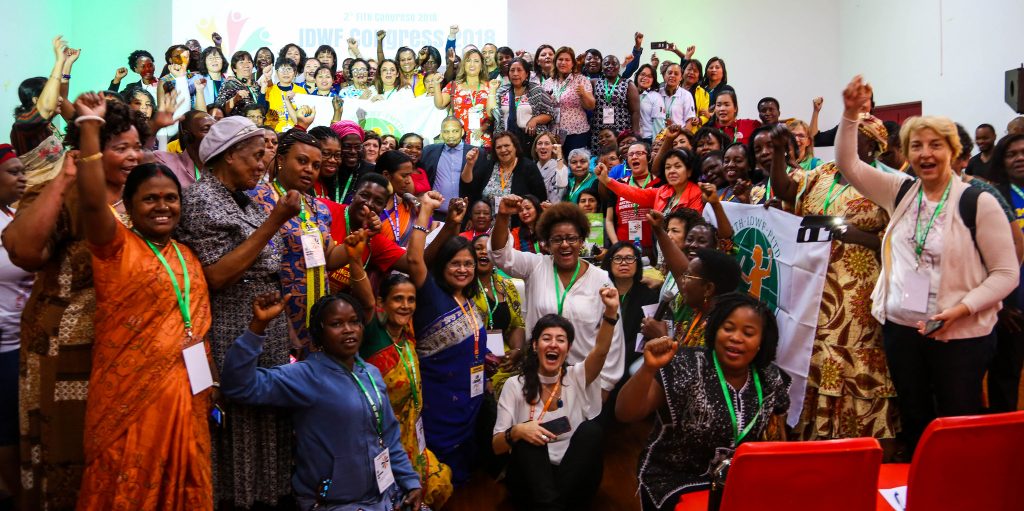
Day One:
The Congress opened with local and international guest speakers. Hester Stephens, President of SADSAWU gave the opening remarks followed by Nkosi Phathekile Holomisa, Deputy Minister of Labour of South Africa. Others were Pia Stalpaert of the IUF/ACVCSC, Zingiswa Losi, President of COSATU, Sally Roever of WIEGO and Sharan Burrow of the ITUC in a video. After the break, Myrtle Witbooi, the President of the IDWF gave the keynote address. She gave an historical overview of the IDWF, which provided proof that domestic workers can organize and become strong. She highlighted three important issues that IDWF has to still work hard on as they are as yet unfinished: leadership accountability at all levels; organizational sustainability and successful organizing of migrant domestic workers.
Next, Elizabeth Tang, the General Secretary reported on IDWF activities over the past five years. Much of her report was focused on the achievements and challenges of organizing. Today the IDWF has become a global family of 69 domestic workers unions and other organizations in 55 countries, representing over 600,000 domestic workers. The successes are largely due to the hard work and sacrifices of domestic workers themselves. Finally she stressed that although collective bargaining was neither a norm nor legally sanctioned for domestic workers, domestic workers were gaining rights through various forms of collective actions.
The afternoon was devoted to four parallel workshops on the themes of organizational sustainability, organizing, migrants and refugees and occupational safety and health. The Congress also approved the Standing Orders which laid down the rules of conduct of the Congress. Grace Papa of the ACVCSC, Ruth Kakame of KUDHEIHA and Elizabeth Tang were approved as members of the Credential Committee. The Congress agreed to invited observers to form the Election Committee due to their non-partisan position. They were Chris Bonner of WIEGO, Marieke Koning of the ITUC, Jana Silverman of the Solidarity Centre, Barbro Budin, IDWF Advisor and Vicky Kanyoka, IDWF Regional Coordinator for Africa. Finally we watched scenes of domestic workers’ lives in the “Asian Highlights” and “African Highlights”.
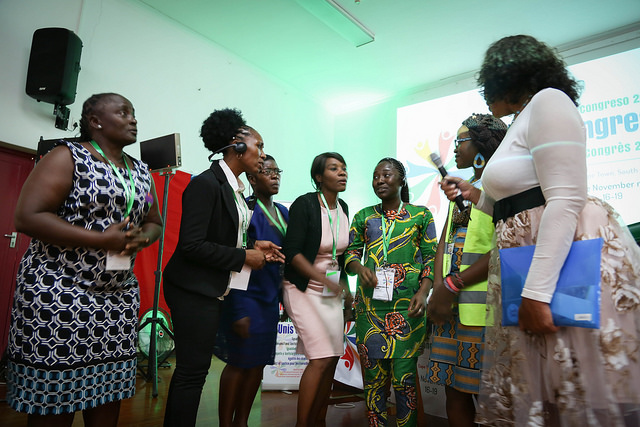
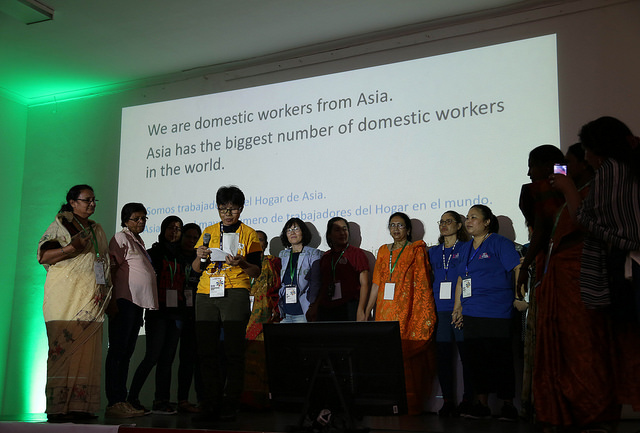
Day Two:
The Congress opened with a special address by Claire Hobden of the ILO. Rapporteurs of the four workshop groups of Day One reported on the key results of their discussions. It was immediately followed by adoption of the proposed resolutions on the same or similar themes. These were resolutions on the protection of migrant domestic workers, organizing domestic workers in the online economy, protection of domestic workers in the care economy and eradication of child labour in domestic work. In the afternoon, another four parallel workshop groups took place on achieving C189; addressing gender-based violence and the ILO process; the care crisis and care workers and addressing discrimination. Results were shared by the respective rapporteurs.
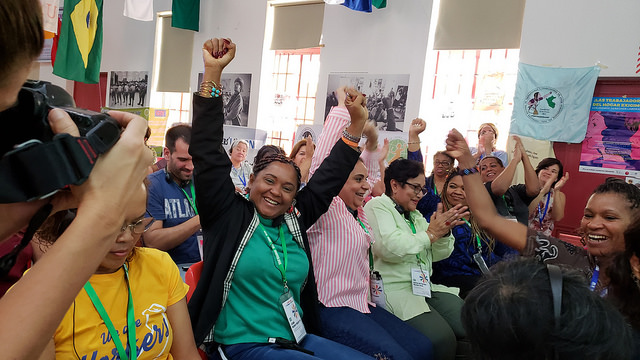
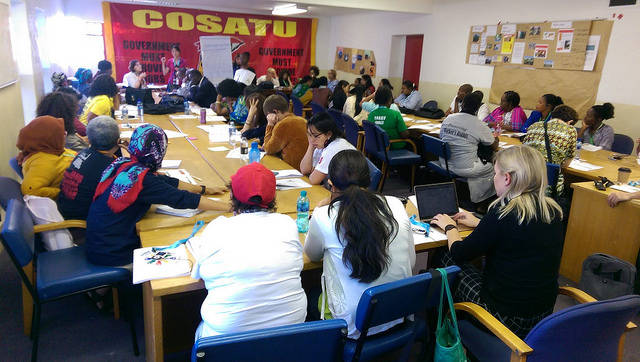
Delegates and observers from North America, the Caribbean and Middle East and North Africa regions presented their regional highlights. Marieke Koning of the ITUC addressed the Congress. The day ended with a report from the Election Committee on the result of the election of the Executive Committee for the coming five years. None of the candidates nominated from the six regions were challenged or contested and hence the Congress unanimously approved the result. Chris Bonner, Chair of the Election Committee told the Congress that election of the office bearers (President, Vice President and General Secretary) would take place on the following day and the deadline for submission of nominees would be 10 a.m. on that day.
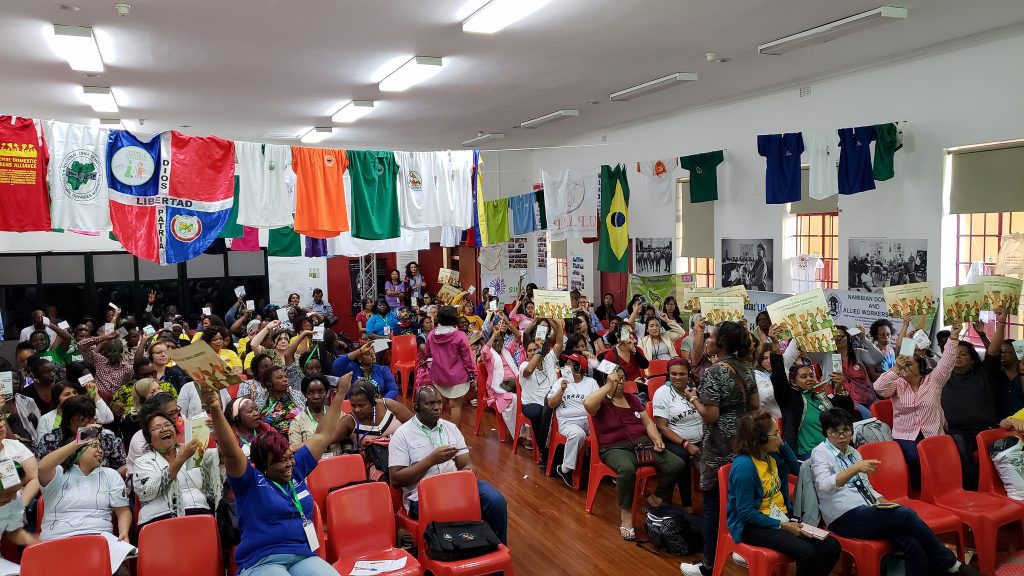
Day Three:
The day was a day of excitement. It started with a presentation of the “European Highlights” by the European affiliates, followed by a special address by Shawna Bada-Blau, Executive Director of the Solidarity Centre and one by Sofia Eriksson, International Secretary of Kommunal.
Finally voting for the office bearers took place. Congress successfully re-elected Myrtle Witbooi and Elizabeth Tang as the President and General Secretary respectively, and Carmen Britez of UPACP (Argentina) the Vice-President. The afternoon was devoted to site-visits during which participants were divided into three groups going to visit a township, the Center for Abused Women and the Table Mountain respectively.
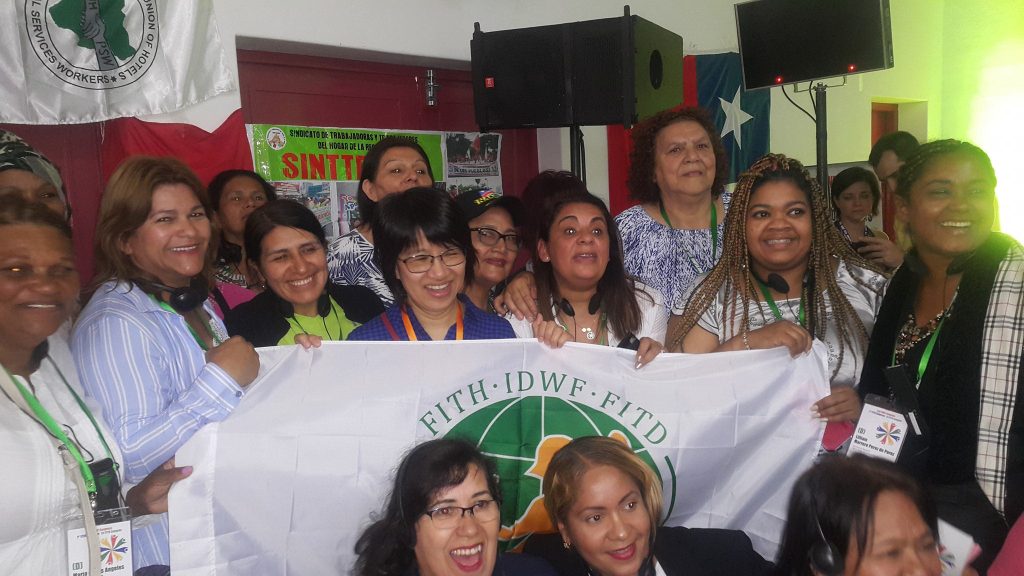
Day Four:
This day was all about planning. It started with very colourful “Latin America Highlights” – a presentation by our delegates from the region wearing their traditional costumes and telling us how their continent is leading in ratification of C189. Delegates joined by observers worked in regional groups on priorities for the next five years. The results were shared in the plenary. Congress then discussed the proposed constitutional amendments and adopted proposals to strengthen IDWF objectives to protect migrant domestic workers, develop women leadership and eradicate child labour in domestic work.
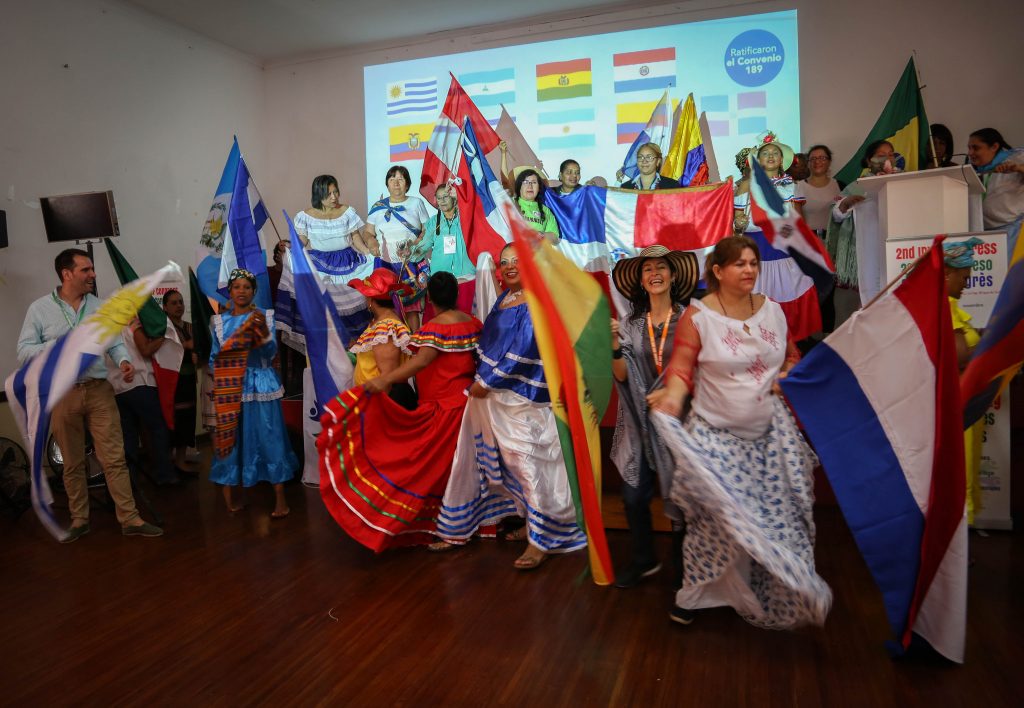
Finally, the Congress adopted the remaining proposed resolutions. The resolution on organizational sustainability was adopted, resolving that the IDWF will make it a priority, and in the next congress period assist its affiliates to achieve this goal and at global level, reform and strengthen its affiliation fees system. The other was the composite resolution on addressing discrimination which resolves that the IDWF will implement a program of action to address discrimination according to gender, race, ethnicities and sexual orientation.
In addition, two emergency resolutions were adopted. The first was to support its affiliates in the USA to stand in solidarity with the Central America migrants and call upon the USA government to stop militarization of the border. The second one expressed the Congress’ concern at the deterioration of human rights and workers’ rights in Brazil and resolved to send a statement to the Brazilian president to express such concern.
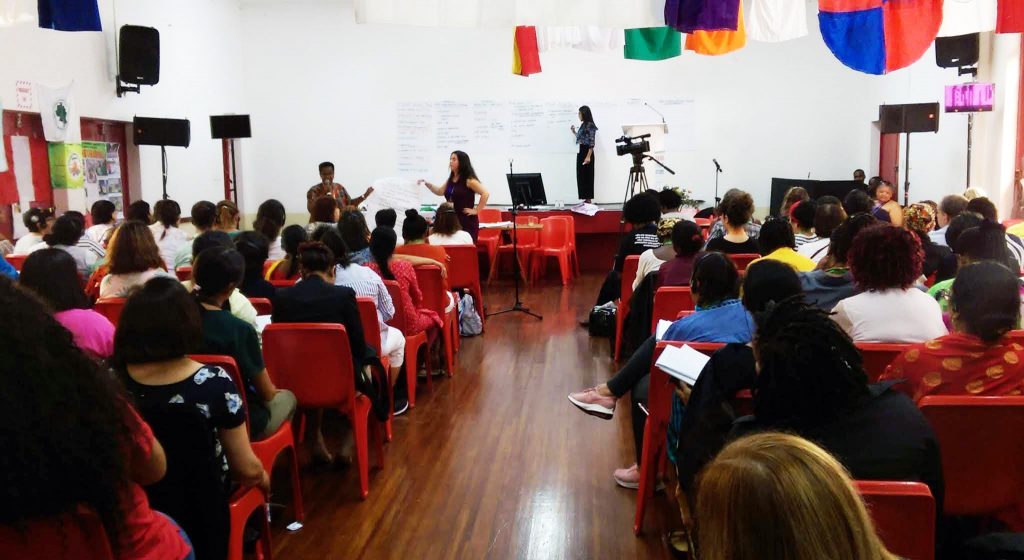
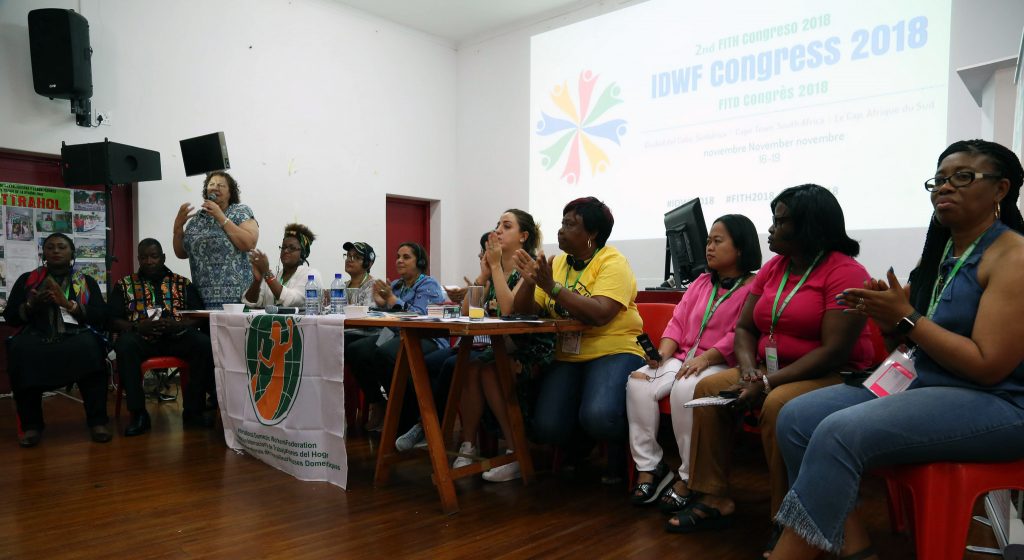
The four days were packed with speeches, group work (formal and informal), slogans, voting, laughter, singing, dancing, photo-taking and eating, among others. To most of us, it was a great success, as it has filled us with inspiration, spirit and concrete ideas to move on. We thank those who have supported this Congress in their own ways – by taking notes, interpreting into many languages, providing funds and so on. Without this support we would not have come this far.
